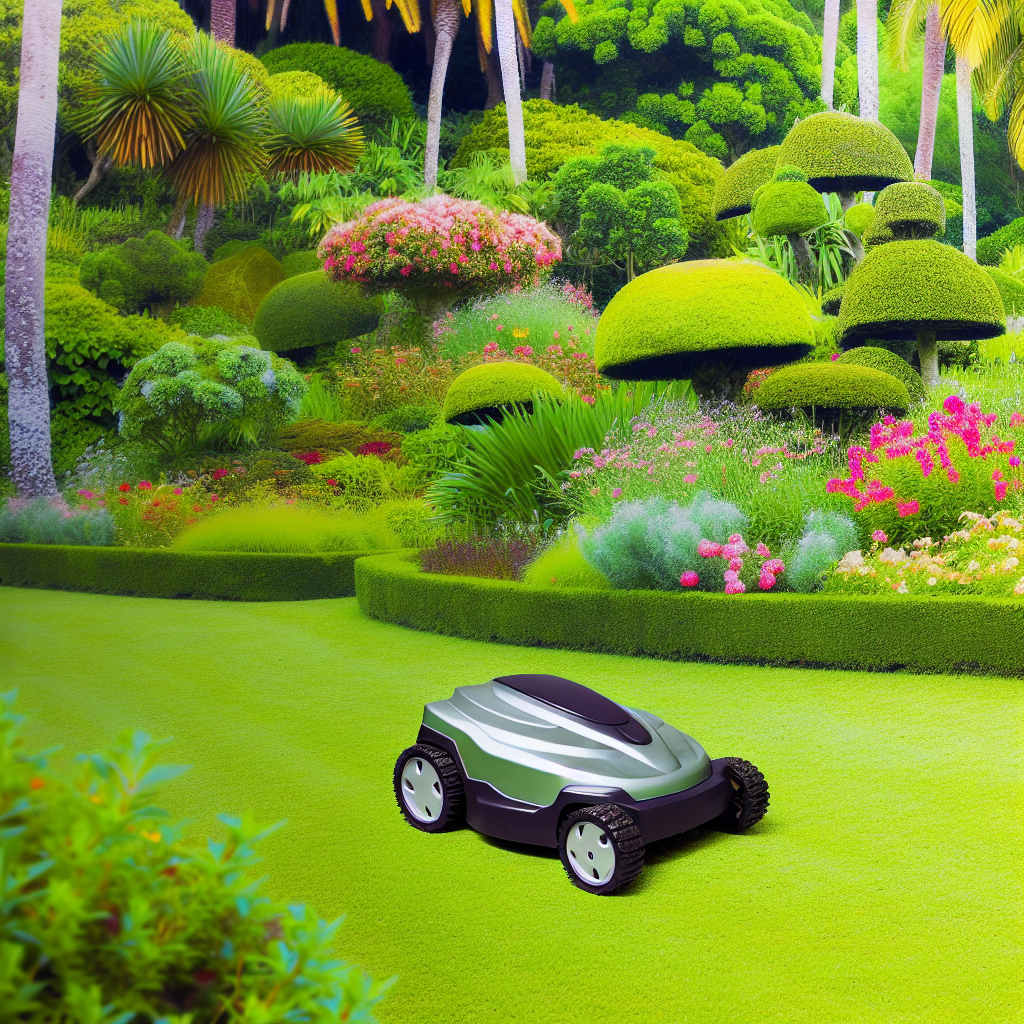AI-Powered Lawn Care: The Future of Garden Maintenance

Discover how AI-powered lawn care is revolutionizing garden maintenance, making it smarter, more efficient, and eco-friendly.
The Rise of AI in Lawn Care
Artificial Intelligence (AI) is swiftly transforming various industries, and lawn care is no exception. Companies are increasingly adopting AI to manage garden spaces, providing innovative solutions that streamline maintenance tasks and enhance overall efficiency. AI-powered systems can handle a wide array of functions, from automated mowing to intelligent irrigation, ensuring optimal garden health with minimal human intervention.
The incorporation of AI in lawn care signifies a significant step towards smarter, data-driven gardening. These advanced systems can analyze various factors such as soil moisture, weather patterns, and plant health, enabling more precise and informed decision-making. As a result, gardeners can achieve better outcomes and maintain beautiful, lush green spaces with less effort.
Smart Sensors and Predictive Analytics for Your Garden
Smart sensors are at the heart of AI-powered lawn care systems, providing real-time data on various environmental conditions. These sensors monitor soil moisture levels, sunlight exposure, temperature, and even detect pests or diseases. This continuous stream of information allows AI systems to make adjustments on-the-fly, ensuring plants receive the right amount of water, nutrients, and care.
Predictive analytics further enhance garden management by forecasting potential issues before they become problematic. By analyzing historical data and current trends, AI can predict when plants might need extra water, when pests are likely to appear, or when weather conditions may stress the garden. This proactive approach helps in maintaining a healthy garden with fewer resources and less manual intervention.
Eco-Friendly Benefits of AI-Driven Lawn Maintenance
AI-driven lawn maintenance is not just about convenience and efficiency; it also offers significant eco-friendly benefits. By optimizing water usage and reducing the need for chemical fertilizers and pesticides, AI systems contribute to more sustainable gardening practices. Smart irrigation systems, for example, ensure that water is used efficiently, reducing waste and protecting this valuable resource.
Moreover, AI can help reduce carbon footprints by minimizing the frequency of lawn mowing and other energy-intensive tasks. Automated mowers powered by AI can operate on schedules that reduce energy consumption, and their precise navigation helps avoid unnecessary overlaps, further conserving energy.
Cost Efficiency and Time Savings with AI
One of the most compelling advantages of AI-powered lawn care is its potential for cost efficiency and time savings. Automated systems reduce the need for manual labor, allowing companies to allocate resources more effectively. This can lead to significant savings in operational costs, particularly for large commercial properties or extensive garden spaces.
In addition to cost savings, AI-driven solutions save valuable time. Gardeners and property managers can focus on other critical tasks while AI systems handle routine maintenance. This not only improves productivity but also ensures consistent and reliable care for the garden, regardless of human availability.
Future Trends: What to Expect in AI-Powered Lawn Care
The future of AI-powered lawn care is promising, with continuous advancements expected to bring even more sophisticated solutions. We can anticipate more integrated systems that combine various aspects of garden management, from soil health monitoring to automated plant care. These systems will likely become more accessible and user-friendly, making advanced lawn care technology available to a broader audience.
Additionally, developments in machine learning and AI algorithms will further enhance the accuracy and efficiency of these systems. As AI continues to evolve, we can expect even more personalized and adaptive lawn care solutions, tailored to the unique needs of individual gardens. This evolution will undoubtedly transform how we approach garden maintenance, making it smarter, more sustainable, and incredibly efficient.

